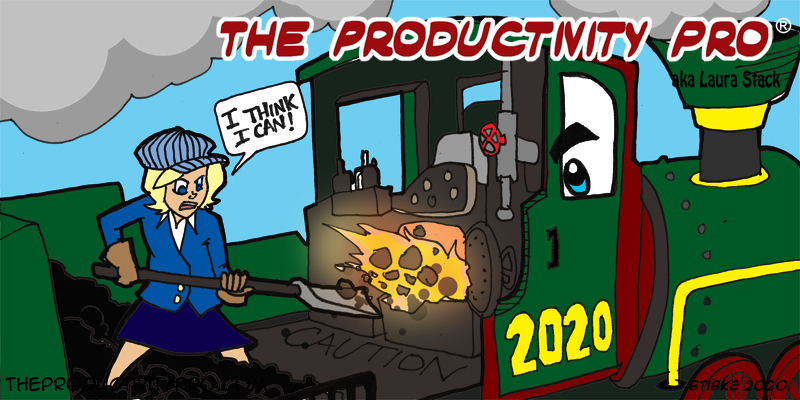
“It’s not the load that breaks you down, it’s the way you carry it.” —Lou Holtz, American football player, coach, and analyst.
Most of us are well aware of the statistics for workplace engagement. For at least a decade, most surveyed workers have reported they’re just moderately engaged or completely disengaged rather than fully engaged with their work, at a rate of about 3:1. It’s changed very little from year to year. Either upper management doesn’t care, or the things they’ve tried so far haven’t worked.
I suspect it’s the latter more than the former. Despite the rhetoric of productivity, and our focus on boosting performance, most of us care more about paying for the mortgage and childcare than we do about maximizing our organization’s bottom line. We don’t live to work, but vice versa. This is perfectly normal, even when you like your job; it’s about survival first. In the West at least, it’s only in the last century or so that collective benefit has been emphasized in corporate structures, and not everyone buys into the idea anyway. It’s not cynicism that’s the problem; it’s reality. Bills and company politics trump the well-being of the organization… until a lack of well-being threatens our jobs.
If you find yourself in such a position, it may be understandable… but you still owe it to yourself to at least try to reignite your motivation and boost your productivity, ideally in a way that reengages you with your work. Wondering how to do so? Try these four methods.
-
-
- Create a mini-crisis for yourself. Crises demand quick, solid action to successfully push through, often requiring your best work. Now, you can’t depend on a crisis occurring naturally to trigger your motivation, but you can simulate one. Admittedly, your reaction may be muted somewhat by knowing that the crisis isn’t genuine, but you can work around that. For example, even if you know you have five days to complete a task, set yourself a deadline of three days and let your teammates know you’ll be done then, so they’ll hold you accountable. Or think about the horrible repercussions if you don’t finish by the deadline, up to and including getting fired, losing your home, and living in the street. Focus as much as possible on your goal, and if needed, set a timer and then working diligently on the task for 10, 15, or 30 minutes to get your engines engaged.
- Take advantage of your energy peaks. Don’t try conquering the world first thing in the morning if you’re a night owl; you may be best able to maximize motivation at 2 PM. So save your big projects or must-do work for then. In the meantime, take care of other projects, or do minor work on a big project.
- Set a new benchmark to strive for. If you’re feeling ho-hum about work, it may have become too easy for you; i.e., you may lack the necessary challenges to excel. Examine your goals, both short-term and long-term. Are they too easy to achieve? Ideally, you should have to stretch a little to get them done. If you always hit at or above your mark, raise the mark and then see what happens when you try to reach it.
- Set aside time for a passion project. Gmail, Google’s supremely popular email service, began as a Google employee side project — a passion project someone got management to sign off on for a short time each week. So did the late Google+, and a number of other Google initiatives. If you come up with a great idea you think could benefit your organization, pitch it to your superiors. They may let you go with it. Even if they don’t, that doesn’t mean you can’t design a passion project for your own time to help keep you bright-eyed and bushy-tailed. An example: once, there was a journalist named Frank who kept turning down his co-workers’ offers to go out for a drink in the evening. Each night he went home immediately after work, to his co-workers’ derision. They found out why when Frank Herbert published his runaway bestseller science fiction novel Dune, a passion project that remains one of the genre’s classics.
-
- A Little Nitro… Auto racers sometimes use nitrous oxide to power up their engines. Occasionally, human motivation needs the same thing. So next time you’re lagging behind your hopes and expectations, use one of the above methods or something similar to inject some nitro into your workplace engine. Sometimes all you need is a running start to get back on track and ahead of the pack.
About Laura Stack, your next keynote speaker:
© 2019 Laura Stack. Laura Stack, MBA, CSP, CPAE is an award-winning keynote speaker, bestselling author, and noted authority on employee and team productivity. She is the president of The Productivity Pro, Inc., a company dedicated to helping leaders increase workplace performance in high-stress environments. Stack has authored eight books, including FASTER TOGETHER: Accelerating Your Team’s Productivity (Berrett-Koehler 2018). She is a past president of the National Speakers Association, and a member of its exclusive Speaker Hall of Fame (with fewer than 175 members worldwide). Stack’s clients include Cisco Systems, Wal-Mart, and Bank of America, and she has been featured on the CBS Early Show and CNN, and in the New York Times. To have Laura Stack speak at an upcoming meeting or event, call 303-471-7401 or contact us online.


